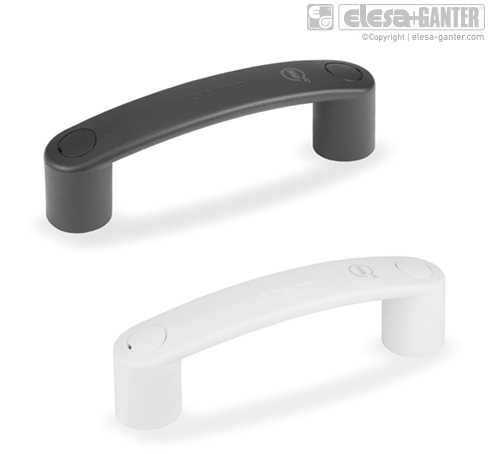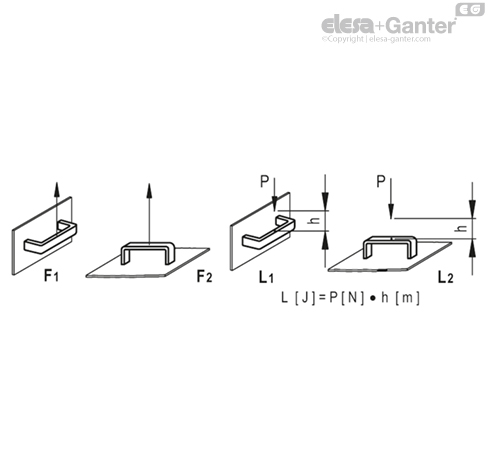EBP-SAN
Bridge handle
Technopolymer with antimicrobial protection

EBP-SAN
Bridge handle
Bridge handle
EBP-SAN
Bridge handle
Bridge handle


Material
Glass-fibre reinforced polyamide based (PA) technopolymer, with silver ion additive on an inorganic base, RAL 7021 grey-black colour (C1) or RAL 9016 white (C16), matte finish.
Screw-covers
- ECA.B SAN: polyamide based (PA) technopolymer, with silver ion additive on an inorganic base, RAL 7021 grey-black colour (C1) or RAL white (C16), matte finish. Supplied with the handle, press-fit assembly, removable by a screwdriver.
Available also as accessories sold separately (see table).
Standard execution
Pass-through holes for cylindrical-head screws with hexagon socket.
LOOKING FOR ALUMINIUM PROFILES:
Feeling overwhelmed with what product to choose?
Don’t delay, give OIC a call and talk to us about your industrial application. Our aim is to help your business choose the right Elesa+Ganter element for the function you need. Whether you need to clamp, close, connect, control, level, manoeuvre, measure or set. OIC has an Elesa+Ganter machine element to fit your need.
We want to find out about your industrial application need and where we can help. Our contact details are below.